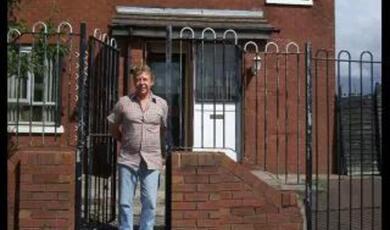The Case for Basic Income
Share
- Details
- Text
- Audio
- Downloads
- Extra Reading
This lecture puts forth the ethical and economic case for a basic income, enabling financial security and therefore a better quality of life for all. Financial insecurity affects one’s ability to make rational decisions – studies show it even lowers short-term IQ – making it even harder to improve one’s circumstances in the long run.
Furthermore, unlike means-tested social assistance schemes like Universal Credit, a basic income does not involve a severe ‘poverty trap’ and thus, contrary to critics, increases the incentive to take low-paying jobs.
This lecture draws on findings from a series of BI pilots across the world which Dr Standing has been involved in.
Download Text
The Ethical and Economic Case for Basic Income
Guy Standing, Professorial Research Associate, SOAS University of London
19 March 2025
What is Basic Income?
The first task is to define what is meant by basic income, especially as many critics, deliberately or otherwise, misrepresent what is meant. It is fundamentally an economic right, a modest payment paid to each individual, without means-tests, regardless of gender, marital or household status or work status. It would be paid equally to each individual, with a smaller amount paid to each child, paid to the mother or the surrogate mother. It would be paid unconditionally, in terms of supposed contributions or past or present behaviour, and it would be non-withdrawable.
The Ethical Case
The main body of the lecture will outline the ethical or moral rationale for moving in the direction of having a modest basic income for everybody in society. There are three ethical justifications – common justice, freedom and basic security. The lecture will outline the seven forms of justice it would enhance, the three forms of freedom and the reasoning behind making basic security a vital social policy objective. It will give particular attention to the ecological case, arguing that a basic income is a vital means of re-orienting society towards ‘commoning’ and other ecologically sustainable ways of living and working.
The Economic and Political Case
The economic case rests on the argument that the income distribution system of the 20th century has broken down irretrievably, and that we are living in an era of rentier capitalism, in which more and more of the income is flowing to the owners of physical, financial and so-called intellectual property. As a result of rentier capitalism, a new globalized class structure has taken shape, in which the new mass class is the precariat, defined in terms of multiple forms of insecurity, volatile and uncertain incomes and systemic loss of all forms of citizenship rights. Old social democratic forms of social security do not reach the precariat, and indeed those in it are being severely penalized by means-tested, behaviour-tested forms of social assistance, epitomized by Universal Credit. Above all, this is the age of chronic economic uncertainty, which cannot be overcome by old forms of social security, as developed in the Beveridge or Bismarckian forms of welfare state.
The political case has become dauntingly relevant. Unless the state moves to provide the precariat and others with basic security, the drift to support far-right populism will continue. The authoritarian populists will play on the fears and insecurities of a growing proportion of the population. So far, progressives in politics have had no coherent response. While basic income is no panacea, it should be seen as a vital part of a new progressive politics.
The Objections and Responses
Finally, the lecture will deal with the principal objections and how to overcome them, notably dealing with the issue of affordability and impact on work and other forms of activity. This will draw from pilots and experiments, including the recently concluded pilots in Wales and the USA.
© Professor Guy Standing, 2025
References and Further Reading
Standing, Guy. Basic Income: And how we can make it happen. 2017
Standing, Guy. The Politics of Time: Gaining Control in the Age of Uncertainty. 2023
Standing, Guy. Basic Income: And how we can make it happen. 2017
Standing, Guy. The Politics of Time: Gaining Control in the Age of Uncertainty. 2023
Part of:
This event was on Wed, 19 Mar 2025
Support Gresham
Gresham College has offered an outstanding education to the public free of charge for over 400 years. Today, Gresham College plays an important role in fostering a love of learning and a greater understanding of ourselves and the world around us. Your donation will help to widen our reach and to broaden our audience, allowing more people to benefit from a high-quality education from some of the brightest minds.


 Login
Login







